I
Oh, ¿qué puede afligirte, caballero armado,
tan solo y pálido vagando?
El junco está marchito en el lago
y de aves no hay un solo canto.
II
Oh, ¿qué puede afligirte, caballero armado,
tan macilento y tan apenado?
Lleno está el granero de la ardilla
y la cosecha ya ha sido recogida.
III
En tu frente veo un lirio
humedecido de angustia y febril rocío;
y en tu mejilla una rosa desteñida
velozmente también se marchita.
IV
Encontré a una dama en el prado,
muy hermosa, una doncella de las hadas;
su cabello era largo, sus pies eran ligeros,
y salvajes sus ojos miraban.
V
Hice una guirnalda para su cabeza,
y también brazaletes, y un fragante cinturón;
me miró ella al tiempo en que me amaba,
y un dulce gemido lanzó.
VI
La senté sobre mi corcel al paso,
y en todo el día ya no vi más nada,
pues hacia un lado ella se inclinaba
entonando una canción de hadas.
VII
Me encontró raíces de dulce sabor,
y miel silvestre y rocío de maná;
y en una lengua extraña seguro dijo:
“¡Te amaré con fidelidad!”.
VIII
A su gruta élfica me llevó,
y allí lloró y suspiró con aflicción,
y allí cerré sus ojos frenéticos
con cuatro besos.
IX
Y allí me arrulló hasta que me dormí,
y allí soñé, ¡ah, presagio de tormento!,
el último sueño que jamás soñé,
en la ladera del frío cerro.
X
Vi pálidos reyes, y príncipes también,
pálidos guerreros, todos con una palidez de muerte;
y gritaron: “¡La Bella Dama sin Piedad
esclavizado te tiene!”.
XI
Vi sus hambrientos labios en la oscuridad
en horrible advertencia abiertos,
y desperté, y aquí me encontré,
en la ladera del frío cerro.
XII
Y es por eso que permanezco aquí,
tan solo y pálido vagando,
aunque el junco esté marchito en el lago
y de aves no haya un solo canto.
Oh, ¿qué puede afligirte, caballero armado,
tan solo y pálido vagando?
El junco está marchito en el lago
y de aves no hay un solo canto.
II
Oh, ¿qué puede afligirte, caballero armado,
tan macilento y tan apenado?
Lleno está el granero de la ardilla
y la cosecha ya ha sido recogida.
III
En tu frente veo un lirio
humedecido de angustia y febril rocío;
y en tu mejilla una rosa desteñida
velozmente también se marchita.
IV
Encontré a una dama en el prado,
muy hermosa, una doncella de las hadas;
su cabello era largo, sus pies eran ligeros,
y salvajes sus ojos miraban.
V
Hice una guirnalda para su cabeza,
y también brazaletes, y un fragante cinturón;
me miró ella al tiempo en que me amaba,
y un dulce gemido lanzó.
VI
La senté sobre mi corcel al paso,
y en todo el día ya no vi más nada,
pues hacia un lado ella se inclinaba
entonando una canción de hadas.
VII
Me encontró raíces de dulce sabor,
y miel silvestre y rocío de maná;
y en una lengua extraña seguro dijo:
“¡Te amaré con fidelidad!”.
VIII
A su gruta élfica me llevó,
y allí lloró y suspiró con aflicción,
y allí cerré sus ojos frenéticos
con cuatro besos.
IX
Y allí me arrulló hasta que me dormí,
y allí soñé, ¡ah, presagio de tormento!,
el último sueño que jamás soñé,
en la ladera del frío cerro.
X
Vi pálidos reyes, y príncipes también,
pálidos guerreros, todos con una palidez de muerte;
y gritaron: “¡La Bella Dama sin Piedad
esclavizado te tiene!”.
XI
Vi sus hambrientos labios en la oscuridad
en horrible advertencia abiertos,
y desperté, y aquí me encontré,
en la ladera del frío cerro.
XII
Y es por eso que permanezco aquí,
tan solo y pálido vagando,
aunque el junco esté marchito en el lago
y de aves no haya un solo canto.
John Keats
LA BELLE DAME SANS MERCI
I
O what can ail thee, knight-at-arms,
alone and palely loitering?
The sedge has wither’d from the lake,
and no birds sing.
II.
O what can ail thee, knight-at-arms!
So haggard and so woe-begone?
The squirrel’s granary is full,
and the harvest’s done.
III.
I see a lily on thy brow
with anguish moist and fever dew,
and on thy cheeks a fading rose
fast withereth too.
IV.
I met a lady in the meads,
full beautiful—a faery’s child,
her hair was long, her foot was light,
and her eyes were wild.
V.
I made a garland for her head,
and bracelets too, and fragrant zone;
she look’d at me as she did love,
and made sweet moan.
VI.
I set her on my pacing steed,
and nothing else saw all day long,
for sidelong would she bend, and sing
a faery’s song.
VII.
She found me roots of relish sweet,
and honey wild, and manna dew,
and sure in language strange she said—
“I love thee true.”
VIII.
She took me to her elfin grot,
and there she wept, and sigh’d fill sore,
and there I shut her wild wild eyes
with kisses four.
IX.
And there she lulled me asleep,
and there I dream’d—Ah! woe betide!
The latest dream I ever dream’d
on the cold hill’s side.
X.
I saw pale kings and princes too,
pale warriors, death-pale were they all;
they cried—“La Belle Dame sans Merci
hath thee in thrall!”
XI.
I saw their starved lips in the gloam,
with horrid warning gaped wide,
and I awoke and found me here,
on the cold hill’s side.
XII.
And this is why I sojourn here,
alone and palely loitering,
though the sedge is wither’d from the lake,
and no birds sing.
John Keats.
I
O what can ail thee, knight-at-arms,
alone and palely loitering?
The sedge has wither’d from the lake,
and no birds sing.
II.
O what can ail thee, knight-at-arms!
So haggard and so woe-begone?
The squirrel’s granary is full,
and the harvest’s done.
III.
I see a lily on thy brow
with anguish moist and fever dew,
and on thy cheeks a fading rose
fast withereth too.
IV.
I met a lady in the meads,
full beautiful—a faery’s child,
her hair was long, her foot was light,
and her eyes were wild.
V.
I made a garland for her head,
and bracelets too, and fragrant zone;
she look’d at me as she did love,
and made sweet moan.
VI.
I set her on my pacing steed,
and nothing else saw all day long,
for sidelong would she bend, and sing
a faery’s song.
VII.
She found me roots of relish sweet,
and honey wild, and manna dew,
and sure in language strange she said—
“I love thee true.”
VIII.
She took me to her elfin grot,
and there she wept, and sigh’d fill sore,
and there I shut her wild wild eyes
with kisses four.
IX.
And there she lulled me asleep,
and there I dream’d—Ah! woe betide!
The latest dream I ever dream’d
on the cold hill’s side.
X.
I saw pale kings and princes too,
pale warriors, death-pale were they all;
they cried—“La Belle Dame sans Merci
hath thee in thrall!”
XI.
I saw their starved lips in the gloam,
with horrid warning gaped wide,
and I awoke and found me here,
on the cold hill’s side.
XII.
And this is why I sojourn here,
alone and palely loitering,
though the sedge is wither’d from the lake,
and no birds sing.
John Keats.
Pintura: "La belle dame sans merci", (La bella dama sin piedad), Frank Dicksee,
(1853 - 1928).
(1853 - 1928).



,++1903,+John+William+Waterhouse..jpg)










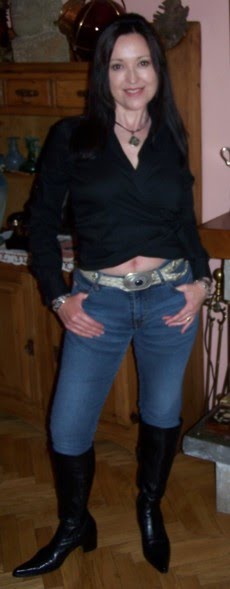

















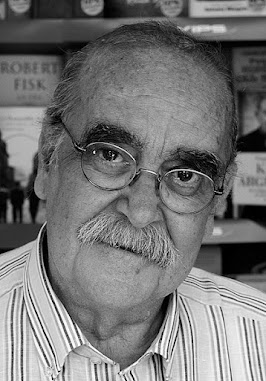






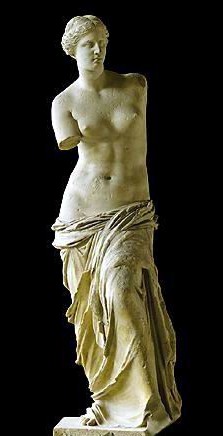.jpg)








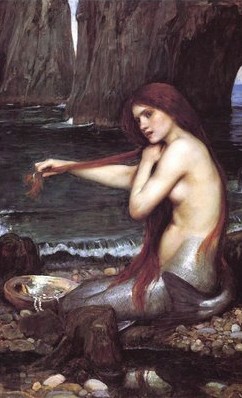









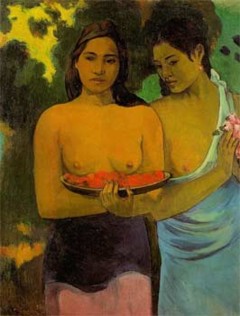




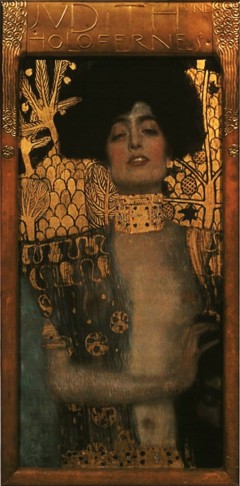.jpg)








